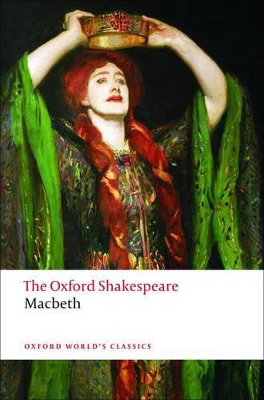Reviewed by Michael @ Knowledge Lost on
The Elizabethan Era was generally regarded as a ‘golden age’ for England. Colonialism was strong, England has dominating the seas (defeating the Spanish Armada) and there was great commercial wealth to be found in the ‘New World’. However the Jacobean Era was different; James VI of Scotland inherited the throne in 1603 and things seemed to change drastically. The ‘Gunpowder Plot’ of 1605 failed to assassinate the king and the plotters were executed. This possibly led to the King commissioning a new translation of the bible; the ‘King James Version’ was first published in 1611.
The reason I talk about these two eras is that there seems to be a connection to Macbeth. Set in Scotland, Macbeth seems to reflect the atmosphere of the Jacobean Era and there has been speculation to the play alluding to the Gunpowder Plot. However to try to draw direct correlations between Macbeth and the political situations of the time would require a lot of speculation. I just added this information into this review because there are connections that I feel would be relevant or interesting to readers of this play.
I was lucky enough to have experienced Macbeth as a play being performed before ever reading it for my university course. There is something about the performance that was essential to critically reading the text; I already understood the plot, the tone and the overall emotions behind the words and this allowed me to grasp a lot more out of the play. One thing that I picked up in reading Macbeth that I seemed to have missed was the importance of gender roles within the play.
Let’s look at one example which appears in Act 1 scene 7. Within the scene Macbeth is having second thoughts about killing the king and taking the crown. Lady Macbeth scolds Macbeth and manipulates him to go through with his original plan. How does she do this? Simply by calling him a coward and telling him he is not a man. She even suggested that she is more of a man and stated she would kill her own child; taking that child from her breast and smash its head against a wall.
There are other themes that are prominent within Macbeth, but the idea of masculinity verses femininity seems to stick with me the most. This idea that claiming you are more of a man than someone else is a common occurrence but the way Shakespeare presented this graphic manipulation really stuck with me. Obviously feminist literary studies would have a field day with this play. I have been picking more and more issues to do with feminism within literature, but I would rather be looking at Marxism or psychoanalyst; why does this keep happening?
Macbeth is this wonderfully dark play that has a lot to offer; I can see why Shakespeare remains a legend. I am not really sure how to review a play like this; there is so much to talk about with plot and theme, however I would rather people discover that for themselves. I do feel like this review turned into something that would resemble a Jackson Pollock with random thoughts flicked onto a page but I wanted to get some of my thoughts down.
This review originally appeared on my blog; http://literary-exploration.com/2014/12/04/tragedy-of-macbeth-by-william-shakespeare/
Reading updates
- Started reading
- 28 April, 2014: Finished reading
- 28 April, 2014: Reviewed
